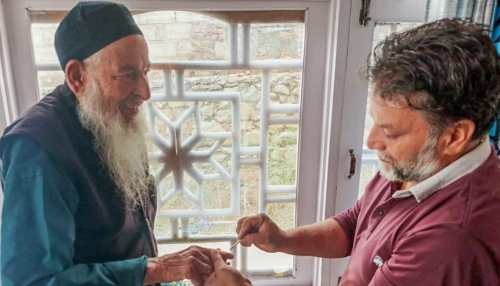- News>
- India
After 2019 Constitution Reorganisation, What Powers Will The New Jammu and Kashmir Assembly Hold?

This election marks the first since the significant changes made in 2019 with the abrogation of Article 370.
The Assembly polls in Jammu and Kashmir began on September 18, as scheduled by the Election Commission of India (ECI). This is the first election since 2019, when the constitutional status of Jammu and Kashmir was altered by the abrogation of Article 370, making the new Legislative Assembly significantly different from previous ones.
This election marks the first since the significant changes made in 2019 with the abrogation of Article 370, meaning the new Legislative Assembly will be quite different from previous ones.
J-K Reorganisation After Abrogation Of Article 370
The Jammu and Kashmir Reorganisation Act of 2019 established two Union Territories: Ladakh, which has no legislature, and Jammu and Kashmir, which does. This led to amendments in the Constitution’s First Schedule and Article 3, which deals with the “Formation of new States and alteration of areas, boundaries or names of existing States”.
Article 239 outlines the administration of Union Territories, which said, “every Union Territory shall be administered by the President, acting through an administrator as deemed appropriate.”
Section 13 of the 2019 Act stipulates that Article 239A of the Constitution, which allows for the creation of local legislatures or councils of ministers for certain Union Territories, will also apply to the UT of Jammu and Kashmir.
As per the 1947 Instrument of Accession, Jammu and Kashmir joined India only in matters of defence, foreign affairs, and communications. Before the abrogation of Article 370 in 2019, Parliament's legislative powers over J&K were limited. However, over time, the central government expanded its lawmaking authority to include many other subjects in the Union List.
The 2019 Reorganisation Act established a significantly different governance framework, granting the Lieutenant Governor (LG) a much larger role compared to the state Assembly.
The 2019 Act also outlines the powers of the J&K Lieutenant Governor. Section 53 specifies that the Lieutenant Governor may exercise discretion in certain matters regarding the Council of Ministers.
